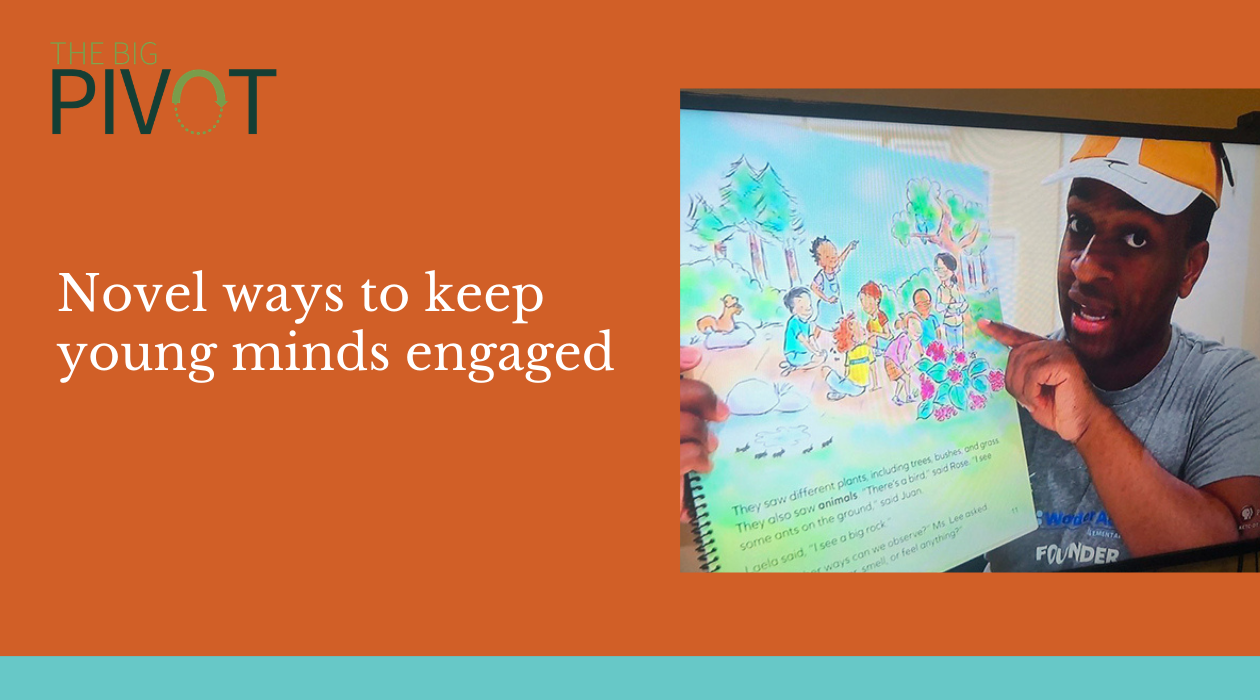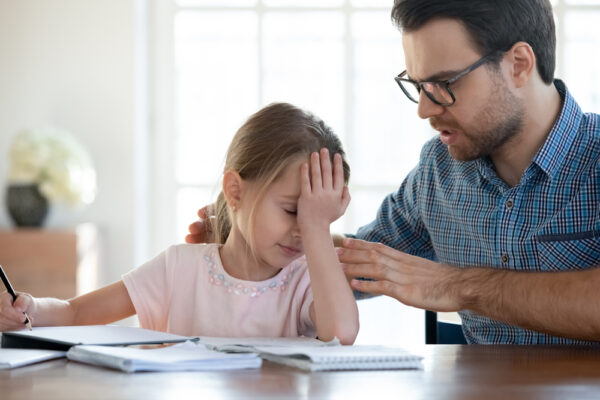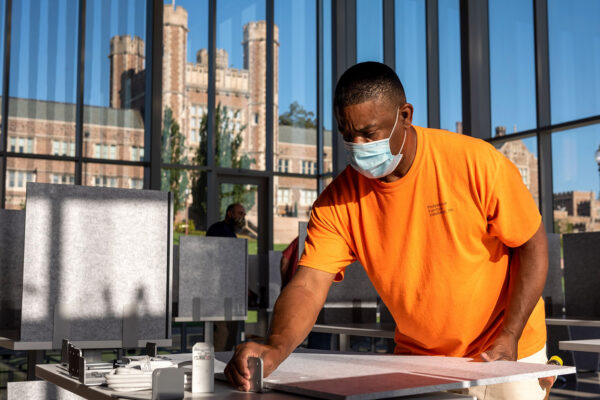A year of online learning is in the rearview mirror. Few would argue that it wasn’t a challenge, particularly for school-age children and their parents. From creating a new COVID-19 curriculum for middle school students to providing free STEM activities and supplies for families, the Institute for School Partnership (ISP) at Washington University in St. Louis came up with novel ways to guarantee St. Louis children continued to learn during the COVID-19 crisis.
“Right away, we began assessing how to help the immediate needs of school neighbors,” said ISP executive director Victoria L. May. “We asked ourselves, ‘What can we do to help in five days, five weeks, and five months?’ Even if it was a short-term fix, we wanted to be strategic about it. Despite our physical distance, partnership remains in our name.”
“We asked ourselves, ‘What can we do to help in five days, five weeks, and five months?’” – Victoria L. May
To ensure students with limited or no access to technology stayed engaged, the ISP partnered with The Little Bit Foundation to develop and distribute STEM Challenges to students and families participating in school-based drive-thru meal service programs. The Little Bit Foundation partners with schools where 90% to 100% of students qualify for free and reduced-price lunches. Since 2018, ISP and the foundation have collaborated to offer project-based STEM learning to the classroom through its MySci Do programming.
In May of 2020, the foundation distributed 1,000 kits and continued to distribute kits throughout June. Students could enter their STEM activities in online challenge and win prizes. And on a local news segment, May demonstrated how anyone can tackle these activities with supplies found at home.
The new initiative was made possible with the support of the Josh Seidel Memorial Foundation and STEMpact.
In addition, the institute partnered with the Nine Network (KETC/Channel 9) to provide weekly science lessons. “Teaching in Room 9, Science” launched May 15 and aired every Friday from 1:30 to 2:30 p.m. for 12 weeks. This science programming complemented two hours of math and literacy taught by local educators that aired weekdays. Nine Network’s STEM programming is for students in pre-kindergarten through fourth grades.
“This new partnership between the ISP and Channel 9 furthers our mission to bring the resources of the university to the community in meaningful and impactful ways,” said May.
ISP instructional specialist Melanie Turnage and Chris Frills, principal of KIPP Wonder Academy led the science programming. Frills targeted students in pre-K to first grade, while Turnage taught students in second to fourth grades.
The curriculum was purposefully low-tech, with Turnage and Frills presenting concepts, reading books, and demonstrating experiments.
Teaching the science behind the outbreak
ISP also created a comprehensive COVID-19 curriculum for middle school students. Lead Instructional Specialist Heather Milo and Mary Buckendorf, middle school science teacher at Hawthorn Leadership School for Girls, developed the mini-module in response to actual questions from Buckendorf’s students. The resulting lessons helped students learn how to keep themselves and others safe and informed during the coronavirus pandemic.
Locally, both KIPP middle schools (KIPP Inspire and KIPP Triumph) are using the curriculum. The materials are free to the public. Other free ISP resources include “How can we as engineers design a concert experience for others to enjoy?” and “From Sun to Food.”
The Institute for School Partnership’s education programs is one way Washington University faculty, students, and staff are improving K-12 education in St. Louis.



